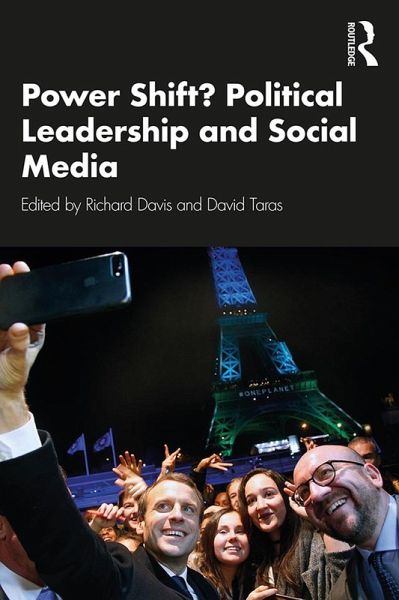
Power Shift? Political Leadership and Social Media (eBook, PDF)
Case Studies in Political Communication
Redaktion: Taras, David; Davis, Richard
Versandkostenfrei!
Sofort per Download lieferbar
49,95 €
inkl. MwSt.
Weitere Ausgaben:

PAYBACK Punkte
25 °P sammeln!
Power Shift? Political Leadership and Social Media examines how political leaders have adapted to the challenges of social media, including Facebook, Instagram, Twitter, and memes, among other means of persuasion. Established political leaders now use social media to grab headlines, respond to opponents, fundraise, contact voters directly, and organize their election campaigns. Leaders of protest movements have used social media to organize and galvanize grassroots support and to popularize new narratives: narratives that challenge and sometimes overturn conventional thinking. Yet each social ...
Power Shift? Political Leadership and Social Media examines how political leaders have adapted to the challenges of social media, including Facebook, Instagram, Twitter, and memes, among other means of persuasion. Established political leaders now use social media to grab headlines, respond to opponents, fundraise, contact voters directly, and organize their election campaigns. Leaders of protest movements have used social media to organize and galvanize grassroots support and to popularize new narratives: narratives that challenge and sometimes overturn conventional thinking. Yet each social media platform provides different affordances and different attributes, and each is used differently by political leaders.
In this book, leading international experts provide an unprecedented look at the role of social media in leadership today. Through a series of case studies dealing with topics ranging from Emmanuel Macron and Donald Trump's use of Twitter, to Justin Trudeau's use of selfies and Instagram, to how feminist leaders mobilize against stereotypes and injustices, the authors argue that many leaders have found additional avenues to communicate with the public and use power. This raises the question of whether this is causing a power shift in the relationship between leaders and followers. Together the chapters in this book suggest new rules of engagement that leaders ignore at their peril.
The lack of systematic theoretically informed and empirically supported analyses makes Power Shift? Political Leadership and Social Media an indispensable read for students and scholars wishing to gain new understanding on what social media means for leadership.
In this book, leading international experts provide an unprecedented look at the role of social media in leadership today. Through a series of case studies dealing with topics ranging from Emmanuel Macron and Donald Trump's use of Twitter, to Justin Trudeau's use of selfies and Instagram, to how feminist leaders mobilize against stereotypes and injustices, the authors argue that many leaders have found additional avenues to communicate with the public and use power. This raises the question of whether this is causing a power shift in the relationship between leaders and followers. Together the chapters in this book suggest new rules of engagement that leaders ignore at their peril.
The lack of systematic theoretically informed and empirically supported analyses makes Power Shift? Political Leadership and Social Media an indispensable read for students and scholars wishing to gain new understanding on what social media means for leadership.
Dieser Download kann aus rechtlichen Gründen nur mit Rechnungsadresse in A, B, BG, CY, CZ, D, DK, EW, E, FIN, F, GR, HR, H, IRL, I, LT, L, LR, M, NL, PL, P, R, S, SLO, SK ausgeliefert werden.













